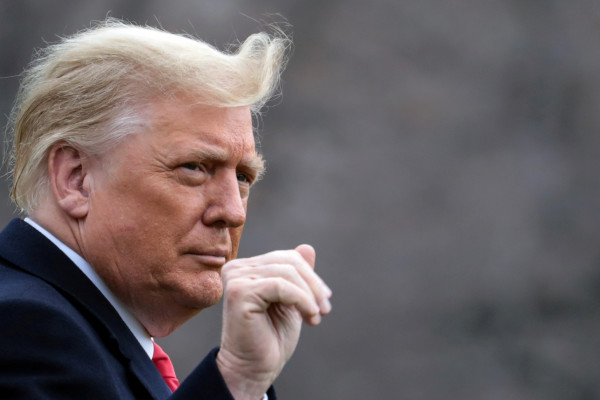Armed Intruder Gets Within Yards of Trump — Secret Service Under Fire for Massive Security Breach

Former President Donald Trump’s security detail has come under fire once again after a second serious breach left the Republican presidential contender dangerously exposed to an armed individual. Critics, security experts, and political figures are raising alarms over the ability of the Secret Service to adequately protect Trump and other high-profile candidates, highlighting systemic failures that could have led to a national tragedy.
In the latest incident, a 58-year-old man from North Carolina, identified as Ryan Wesley Routh, was arrested after coming alarmingly close to Trump while he was golfing at the Trump International Golf Club in West Palm Beach, Florida. According to authorities, Routh had been lying in wait near the sixth hole of the course, armed with an AK-47-style rifle. His intent remains under investigation, but the proximity he gained to the former president has raised serious questions about the Secret Service's preparedness.
Routh was reportedly stationed in a thicket of shrubs on the public side of a fence, just a few hundred yards from Trump, who was teeing off on the fifth hole. An alert Secret Service agent spotted the rifle’s muzzle and immediately opened fire, forcing Routh to flee. The gunman was apprehended 40 miles away, after attempting to escape in a black Nissan SUV.
This security lapse comes just over two months after another gunman, 20-year-old Thomas Matthew Crooks, nearly succeeded in attacking Trump during a July rally in Butler, Pennsylvania. In that case, Crooks managed to position himself atop a law enforcement command center for 20 minutes before opening fire. While Trump narrowly avoided injury, the gunfire tragically claimed the life of volunteer firefighter Corey Comperatore and wounded two others. The delay in neutralizing Crooks led to intense criticism of the Secret Service’s handling of the situation.
Experts have voiced concerns about the Secret Service’s response times and decision-making in both incidents. "It’s incredible that this lunatic was able to get so close to Trump on his own golf course, especially considering what happened in Pennsylvania," said a security source familiar with the case. "Given that Routh had been in the area for 12 hours, the Secret Service should have detected him during any routine perimeter sweep."
Adding to the criticism, Secret Service Director Ronald Rowe Jr. admitted that the golf course hadn’t been thoroughly searched before Trump began his round because it "was not on the official schedule." The lack of preemptive action is being seen as a major oversight in Trump’s protection, especially considering his high-profile status as a presidential candidate.
“If you're the head of security, you already know Trump is a prime target,” the source continued. “Why aren’t there more agents assigned to his detail? Why aren’t there drones or other surveillance measures in place?” The source described the breach as “inexcusable.”
Despite the close call, Trump expressed his gratitude for the agents who intervened, commending them for their “great job,” but also noted the need for additional resources. “We do need more people on my detail,” Trump added, a statement that echoes broader concerns about whether the Secret Service is adequately staffed and equipped to handle modern security threats.
The July incident in Pennsylvania had already shaken confidence in the Secret Service, leading to the resignation of Director Kimberly Cheatle. Following Cheatle’s departure, new leadership was expected to bring improvements in the agency’s protective measures, but the recent breach in Florida suggests that significant challenges remain.
Political figures from both parties have expressed alarm over the Secret Service’s performance. Florida Democrat Rep. Jared Moskowitz, who is part of the congressional task force investigating both assassination attempts, stated, “This is getting embarrassing for the agency, and people in Congress are bewildered why we’re in this situation now for a second time.” Moskowitz’s comments reflect a growing sense of frustration with an agency that has historically been held to the highest standard of protection.
The increased polarization of American politics has only heightened the risk of violence, making the Secret Service’s role more critical than ever. Yet, as these incidents demonstrate, the agency appears to be struggling to adapt to new and evolving threats. Security experts are now calling for a comprehensive review of Secret Service protocols, including the possibility of employing advanced technology such as drones and enhanced surveillance to better protect high-profile individuals like Trump.
As the 2024 presidential campaign intensifies, the safety of candidates will remain a pressing concern. For the Secret Service, the recent lapses serve as a sobering reminder of the stakes involved in their mission, and the dire consequences that could result from further failures.
Sources spoke to the Globe magazine.












